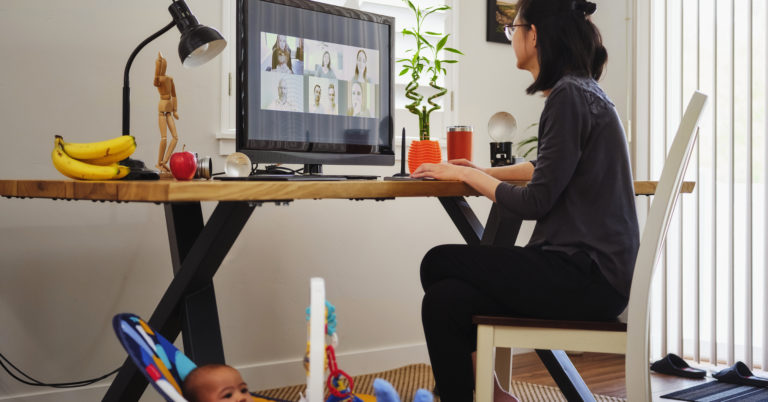Please select your state
so that we can show you the most relevant content.


Independent contracting has been a blessing for those who prefer not to work in traditional office environments. The freedom to be their own boss, set their own hours, and work for a variety of employers has been appealing to many, especially women.
But a year ago, California legislators passed Assembly Bill 5, officially declaring war on the existence of independent contractors.
The new law took away the freedom to freelance by changing the criteria of what constitutes an independent contractor. The checklist, known as the “Dynamex Test,” forces employers to reclassify contractors as traditional employees if they do not satisfy all three of the qualifying conditions.
This forces employers to offer costly benefits and robs contractors of the freedom they prefer. Many employers can’t afford this change, and many contractors prefer the benefits of freelancing compared to the restrictions of being a traditional employee.
Already, jobs are being lost and contractors are suffering the consequences. Women are among those hardest hit by this change.
The following illustrates five key areas where women are being hurt by AB 5.
According to research by the Internal Revenue Service, women are increasingly seeking work as independent contractors. In fact, women are driving much of the overall expansion of this sector, constituting 55 percent of growth.
This makes sense, especially when you look at the reasons why women are choosing the flexibility of contracting over a traditional nine-to-five job.
Many women in the workforce are also caregivers, tending to sick parents or relatives. The Family Caregiver Alliance states that upwards of 75 percent of all caregivers are female.
Independent contracting allows these women to care for their children and loved ones while still earning an income. Instead of putting their careers on hold, they can set their own hours and work when it is convenient.
AB 5 takes away this flexibility, leaving women with fewer options to build their careers and provide for themselves and their families.
Many women want to be their own boss instead of working for someone else. The 2019 State of Women-Owned Business Report found that women are responsible for starting an average of 1,817 new businesses per day. This suggests that women prefer this freedom even if it means sacrificing employer-provided benefits and paid time off.
While labor activists claim that workers want these benefits, the numbers show otherwise. According to the Independent Women’s Forum, 94 percent of female contractors said they are in gig economy for flexibility. Women appreciate choice, and they are choosing to forgo these benefits to pursue starting their own businesses.
AB 5 makes it harder for women to start their own business by working as independent contractors. Changing their employment status will force them back into traditional jobs or, if employers cannot afford them, will leave them struggling to find work.
Many women’s personal circumstances preclude them from working in a traditional office environment. For those battling chronic illnesses and other health issues, many could not otherwise find work without the option to contract.
According to an IWF webinar on women and independent contracting, 46 percent of contractors depend on this line of work because they have health or emotional issues that make it difficult if not impossible to work in an office setting.
Patrice Onwuka, Senior Policy Analyst for IWF, told the story of one woman whose post-traumatic stress made it emotionally taxing to work in a loud office with other people. Contracting gave this woman the ability to work from the comfort of her own home where she felt safe and secure.
AB 5 would force those with health or psychological issues to take jobs that are not conducive to their unique situations.
Traditional jobs do not always offer the most lucrative opportunities for both women and men. This could explain why 17 million people have quit their jobs to become independent contractors. Sixty percent of those now report earning 60 percent more in their new role. Over 50 percent said their new income outpaced their old income within a year.
AB5 harms older Americans adjusting to the new workforce landscape. As young people flood the labor market, older Americans have a harder time finding employment in traditional roles. Allowing older women to work as contractors, specifically in the gig economy, helps them earn a living as they transition out of office settings or until they’re ready to retire.
California is leading the charge on this disastrous policy, but others states, as well as the federal government, have been considering similar actions.
On Election Day, California passed Prop 22, which exempted app-based drivers from being classified as employees. While the result shows that California voters are supportive of flexible work, the measure forces companies like Uber and Lyft to comply with new wage, benefits, and schedule requirements that undermine flexibility.
The U.S. Department of Labor has proposed new guidelines meant to protect independent contractors. This is a great start, but states need to step up and ensure that women are free to pursue meaningful careers conducive to their own unique lives.
Watch IWF’s webinar and learn more about women and independent contracting.
© 2024 AMERICANS FOR PROSPERITY. ALL RIGHTS RESERVED. | PRIVACY POLICY
Receive email alerts to learn how to get involved